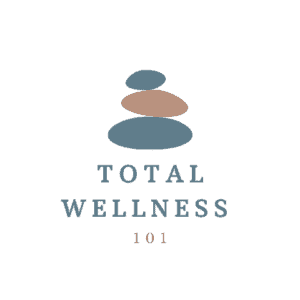In the pursuit of professional success, the modern working professional often finds solace in a cup of coffee or energy drink. Caffeine, the world’s most widely consumed psychoactive substance, has become a staple in the lives of millions, fueling productivity and keeping exhaustion at bay. However, as health consciousness takes center stage, questions arise: Is caffeine a friend or foe in the quest for optimal well-being? Let’s delve into the research to uncover the truth about caffeine and its impact on health, tailored specifically for the discerning working professional.
The Physiology of Caffeine:
Before we explore the potential benefits and drawbacks of caffeine, let’s unravel the physiology that occurs when caffeine enters the body. Caffeine, a natural stimulant found in coffee, tea, and certain energy drinks, primarily targets the central nervous system. Once consumed, it competes with adenosine, a neurotransmitter that promotes sleep and relaxation, for binding to adenosine receptors. By blocking adenosine, caffeine promotes increased alertness, improved mood, and enhanced cognitive function.
The Good: Caffeine as a Productivity Ally
- Enhanced Cognitive Function:
For the working professional navigating a sea of tasks, caffeine can be a cognitive lifesaver. Numerous studies suggest that moderate caffeine intake can improve various aspects of cognitive function, including memory, attention, and reaction time. This boost in mental acuity can be particularly beneficial during demanding workdays or when tackling complex projects.
- Increased Physical Performance:
Beyond mental prowess, caffeine has also been linked to improved physical performance. For those professionals juggling long hours at the office and a commitment to fitness, a pre-workout caffeine hit may enhance endurance, strength, and overall athletic performance. This dual-action capability positions caffeine as a valuable ally for the well-rounded, health-conscious professional.
- Mood Elevation:
The demands of a high-pressure job can take a toll on mental well-being. Caffeine, in moderation, may act as a mood enhancer. For the professional striving to maintain a positive mindset amidst challenges, a thoughtfully timed cup of coffee might just be the pick-me-up needed.
The Bad: Navigating the Pitfalls of Caffeine
- Sleep Disruption:
The delicate balance between professional success and personal well-being often hinges on a good night’s sleep. Caffeine’s ability to interfere with the sleep-inducing effects of adenosine can lead to disrupted sleep patterns, insomnia, and decreased sleep quality. For those professionals grappling with stress or prone to anxiety, excessive caffeine intake, especially later in the day, may exacerbate these issues.
- Dependency and Withdrawal:
The line between enjoying a morning cup of coffee and relying on caffeine for daily functioning can be thin. Regular consumption can lead to dependency, with the body adjusting to the presence of caffeine. Sudden cessation or reduction in intake can result in withdrawal symptoms such as headaches, irritability, and fatigue. Balancing the desire for increased productivity with the risk of dependency is a crucial consideration for the health-conscious professional.
- Cardiovascular Concerns:
While the acute effects of caffeine on cardiovascular health appear to be relatively benign for most individuals, there is ongoing debate about its long-term impact. Excessive caffeine intake has been associated with elevated blood pressure, and concerns have been raised regarding its potential role in cardiovascular events. The health-conscious professional should be mindful of individual tolerance levels and consider consulting a healthcare professional for personalized advice.
Navigating the Middle Ground: The Balanced Approach
As with many things in life, the key to harnessing the benefits of caffeine while mitigating potential drawbacks lies in moderation and mindfulness. Here are some tailored tips for the health-conscious working professional:
- Timing is Everything:
- Consider front-loading your caffeine intake earlier in the day to minimize interference with sleep.
- Be mindful of the half-life of caffeine; its effects can last for several hours, so plan your consumption accordingly.
- Individual Tolerance Matters:
- Pay attention to your body’s signals and adjust your caffeine intake based on personal tolerance levels.
- If you experience adverse effects, such as increased anxiety or disrupted sleep, consider reducing your caffeine intake.
- Hydration is Key:
- Counteract the dehydrating effects of caffeine by ensuring adequate water intake throughout the day.
- Balance caffeinated beverages with hydrating options like water, herbal tea, or infused water.
- Periodic Caffeine Holidays:
- Give your body a break by incorporating occasional caffeine-free days into your routine.
- Use these days to assess your baseline energy levels and identify areas where sustainable lifestyle adjustments may be beneficial.
In the dynamic world of the health-conscious professional, the role of caffeine is nuanced. As a performance enhancer, mood lifter, and cognitive ally, it can be a valuable tool when used wisely. However, its potential pitfalls, from sleep disruption to dependency, warrant a cautious approach. The key lies in finding a personalized balance that aligns with individual health goals and enhances, rather than compromises, overall well-being.
Recent Posts
Strategies for Sales Professionals to Reduce Back Pain and Injuries
In the fast-paced world of sales, professionals often find themselves navigating through long hours, client meetings, and constant travel. Amidst the pursuit of closing deals and meeting targets, the...
In our fast-paced, technology-driven world, the simple act of walking outdoors often takes a backseat to our hectic schedules and sedentary lifestyles. However, the benefits of walking outside for...

